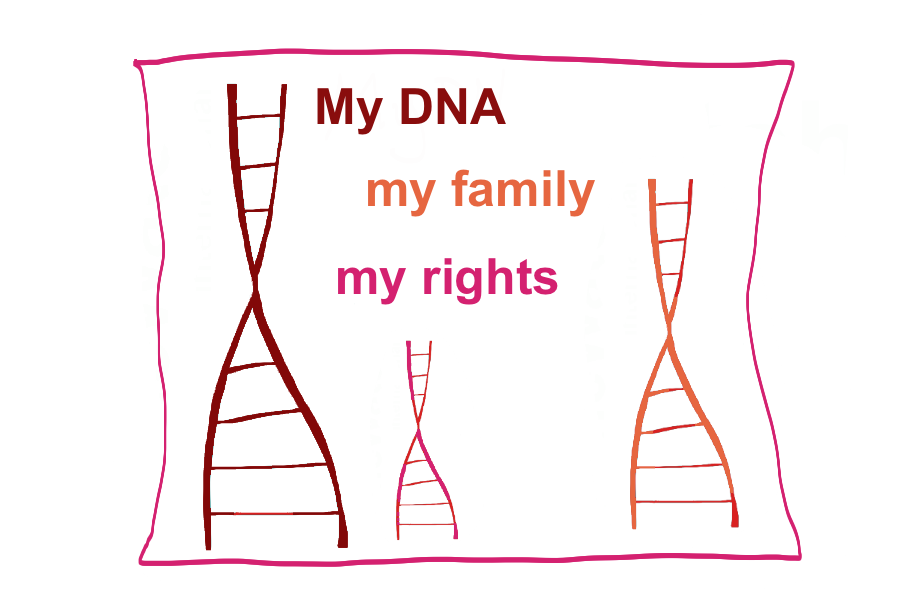DNA can be used for identification, criminal investigation, medical diagnoses, identifying non-paternity, and for research. Could whole populations have their DNA stored in future and used for multiple purposes?
Mandatory collection of DNA for a universal DNA database, or for national ID schemes (see ‘Your DNA as Your ID’), raises human rights implications for a population. Collection of DNA from people without consent is regarded as a violation of bodily integrity. DNA carries personal information about an individual, including allowing the identification of their relatives, and certain aspects of their health and physical characteristics. Even distant relatives may be identified, raising additional concerns regarding the potential discrimination against people of different racialised or minoritized peoples. As such, DNA information is considered private, and human rights safeguards are essential in maintaining the right to privacy and protection against potential discrimination and mass surveillance.
The main arguments made by those in support of universal DNA databases is that they can support criminal investigations, and overcome some of the discrimination and errors that may occur from current DNA databases, including mismanagement, false matches, and misuses of genetic information. However, making DNA collection compulsory for all, is a questionable approach to rectifying the current problems of expanding databases, which may instead have the potential to increase any potential misuse of genetic information. In addition, including large numbers of innocent people on a DNA database significantly reduces its cost-effectiveness for solving crimes, as the majority of the population are not criminals. The recent experience in England illustrates this point. Millions of innocent people’s DNA profiles uploaded to forensic databases were removed following a judgement by the European Court of Human Rights which concluded that the blanket, indiscriminate nature of DNA collection from innocent people was disproportionate and does not respect the private life of citizens. The removal of innocent people’s profiles did not reduce the role of DNA in solving crimes, challenging one of the fundamental rationales behind mass DNA collection.
The use of population-wide DNA for identification is also not foolproof, with identification errors increasing with the size of any database. False matches occur at higher rates between DNA profiles that may be partially the same as any database expands. Such issues raise vital concerns regarding any government proposal to enlist entire populations of people onto any universal database. DNA also plays a limited role in criminal investigations, with the majority of criminal cases not involving DNA evidence, challenging the rationale for population-wide databases.
Universal DNA databases have been proposed by several countries in recent years, but no proposals have been implemented. In 2005, Portugal made such a proposal, but this was abandoned due to the concerns over human rights and the costs of such a policy. Similarly, Uzbekistan made such proposals only to backtrack and implement databases restricted to those convicted of serious crimes. In 2017, Kuwait’s plans to put all citizens and even visitors on a DNA database in order to attempt to identify terrorists, were revoked due to concerns regarding personal privacy violations, and other societal and ethical problems. Those refusing to give DNA samples would have faced up to 1 year in jail or a large fine. This law was also ruled unconstitutional and in breach of the United Nations International Covenant on Civil and Political Rights. Plans to include DNA in a national ID scheme were also ruled unconstitutional in Kenya in 2020. Recent suggestions for universal databases have also appeared in media articles from Rwanda, and less recently Nigeria and Pakistan, though it appears these suggestions did not materialise into concrete proposals or implementation. These recent decisions against the implementation of universal DNA databases highlight the threat they present to human rights, added to the limited evidence that they may be effective in reducing crime.
Find resources in this category here.
